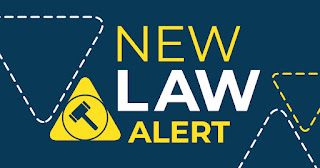The federal Pregnant Workers Fairness Act has been effective since June 27, 2023 and requires reasonable accommodations and prohibits the denial of job opportunities incident to pregnancy from both public and private employers based on the need for such an accomodation. To illustrate, the law provides pregnant employees the right to obtain reasonable accommodations to go to medical appointments and to limit their job function incident to restrictions on movement, except if such function is an essential job function. Under the law, victims can file a charge with the Equal Employment Opportunity Commission (EEOC), within 180 or 300 days (based on whether the applicable state has a Fair Employment Practices Agency), and then, after receiving a right to sue letter from the EEOC, they can sue their employers, in court, for back pay, front pay, emotional distress damages, punitive damages, and attorneys' fees.
However, after the Pregnant Workers Fairness Act passed, the US District Court for the Northern District of Texas temporarily blocked its enforcement against the State of Texas, as an employer, based on arguments that it was passed unconstitutional by proxy voting in violation of the Constitution's Quorum Clause. Now, the Fifth Circuit Court of Appeals brought it back to life as against the State of Texas.
While this is great for pregnant Texas employees, pregnant employees throughout the United States should not just stop at leveraging this federal law when exercising their rights because this law is just a floor of rights under which other federal, state, and local laws may not fall.
For example, a pregnant worker in New York is also protected by the State's Human Rights Law, which has been protecting victims from pregnancy discrimination since 1974. In fact, the New York State Division of Human Rights has published a comprehensive Guidance on Pregnancy Discrimination and Reasonable Accommodations of Pregnancy-Related Conditions for Employers in New York State. The guidance explains that in 2015, the Human Rights Law was amended to expressly address the rights of those with a "pregnancy-related condition," rather than just affording those rights to the extent that pregnancy caused a disability, which was separately protected under the Human Rights Law. Under either route under the Human Rights Law, a pregnant worker can bring a case in state court or before an administrative tribunal at the Division of Human Rights while seeking compensation for the emotional distress, lost wages, and attorneys' fees incident to their employer's failure to accommodate their reasonable needs or if such employee experiences an adverse employment action due to their pregnancy status.
Even further, as of 2025, New York because the first state in the nation to offer Paid Prenatal Leave for prenatal care or any medical care related to pregnancy in an amendment to Labor Law 196-b. Now, privately-employed pregnant workers are able to receive an additional 20 hours of paid sick leave for prenatal care in addition to their existing sick leave, which includes physical examinations, medical procedures, monitoring and testing, and discussions with a health care provider related to the pregnancy. Interestingly, under this Paid Prenatal Leave law, employers cannot even ask pregnancy employees to disclosure confidential information about their health as a condition of use, which when exercised is to be paid at normal hourly rates and enforced by the Department of Labor.
Additionally, and regardless of the state that the victim is located, other federal laws also protect pregnant workers from discrimination, including Title VII, which was amended by the Pregnancy Discrimination Act of 1978, and which prohibits discrimination based on pregnancy, childbirth, or related medical conditions with respect to adverse employment actions. This law requires employers to treat pregnancy workers the same as other temporarily disabled employees and to provide health benefits to pregnant workers to the extent otherwise provided to other workers. Additionally, the federal Americans with Disabilities Act (ADA) separately protects pregnant workers' pregnancy related conditions that qualify as a disability from discrimination. Both Title VII and the ADA are enforceable to the same extent as the federal Pregnant Workers Fairness Act, by filing a charge with EEOC and suing thereafter in federal court.
Finally, pregnant workers should also pay attention to the Family and Medical Leave Act (FMLA), that provides unpaid job-protection for certain family and medical leave reasons, and the Providing Urgent Maternal Protections for Nursing Mothers Act (PUMP Act), which amends the Fair Labor Standards Act to give rights to nursing mothers at work, which is enforceable by private lawsuit, but with a 10 day notice for compliance provision.
In all, pregnant workers enjoy a lot of job related protections and while the federal Pregnant Workers Fairness Act now being applicable to Texas state workers is important, employers and employees alike need to take a deep dive into understanding all of the applicable pregnancy employment rights before a misstep causes a very expensive lawsuit.
If you believe your employer has denied you pregnancy-related accommodations or treated you unfairly because of your pregnancy, you don’t have to navigate it alone. Lieb at Law, P.C. represents employees in New York, New Jersey, Connecticut, and Colorado in pregnancy discrimination and accommodation cases. Contact us today to protect your rights and explore your legal options.



